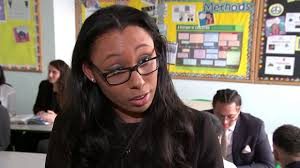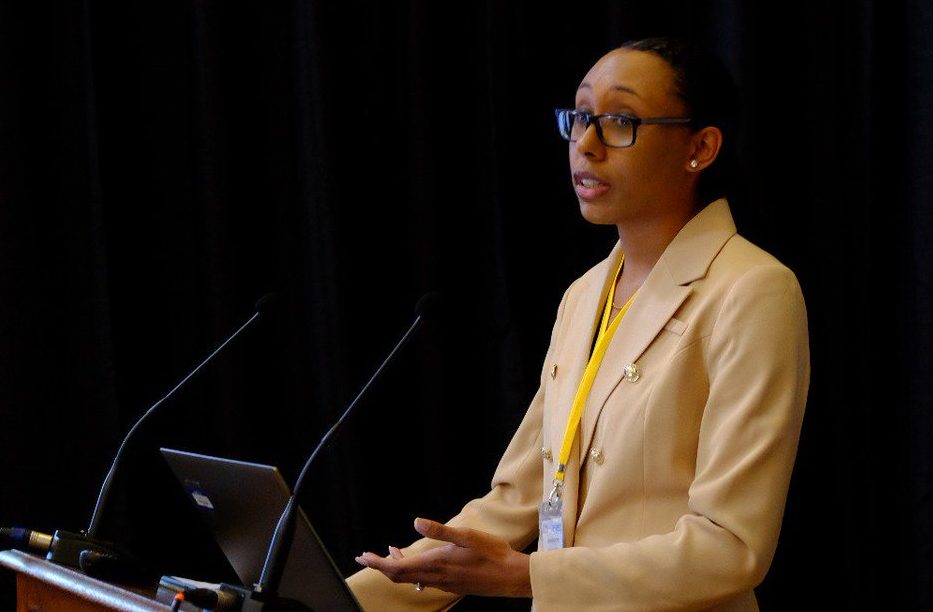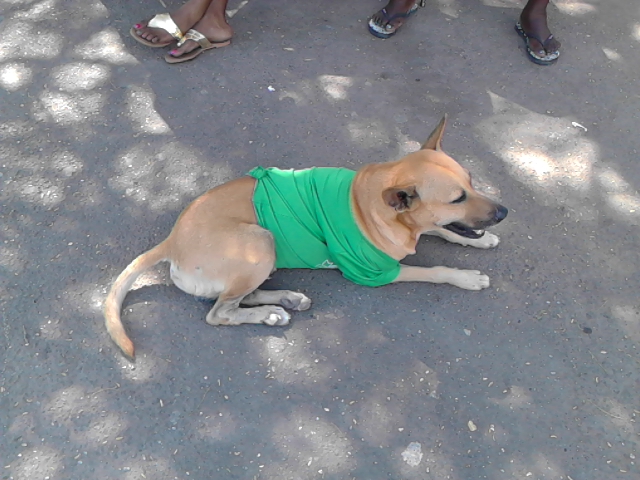Fulfilling aspirations: Dr Patrice Baptiste on becoming a medical doctor

Having the right culture capital is essential to enable those from disadvantaged groups to enter professions such as medicine. In 2016, the Social Mobility Commission’s ‘State of the nation report’ indicated that the level of inequality is not just restricted to doctors. More than half of people in professions such as barristers and journalists within the UK attended fee paying public schools (typically known as private schools in North America). It appears that the gap has only escalated. In 1987 those studying medicine who attended public schooling stood at a figure of 51%. In 2016, this figure increased to 61%. Such statistics are disturbingly unrepresentative of the population of the UK; particularly when you consider that only 7% of the population attend public schools. I caught up with medical doctor, Dr Patrice Baptiste to get her thoughts on the matter.
Patrice: I think that you need a lot of different institutions and organisations to help combat those figures. Whether that be at higher education level with widening participation activities and specific campaigns supporting more diversity at university. Schools: encouraging students and helping them get the support that they need to succeed into competitive fields like medicine. There are a number of independent organisations, but there needs to be more, a lot more. That’s one of the reasons why I started my company; to help students from underrepresented backgrounds get that support and have that network so they can break down barriers to get into Russel Group universities. To go further, students also need a support network– parents and friends– and the government can do more too. There needs to be a multifaceted approach to this. You can’t just say “the universities or the schools have to do more”. Obviously, there are issues such as lack of funding so I think that is why it is important to have communities and organisations working together to help change this.
I believe that you attended a state school. Coming from a state school and then being involved in an environment which is heavily concentrated by public school attendees, how were you able to navigate that world; that space?
Patrice: When I left school I entered sixth form, then straight on to university. I think the transition wasn’t that big, so for me going to university was kind of like going to college, or sixth form. It was daunting to be in an environment where there were less black students and students from comprehensive schools like myself. My school was composed of predominantly black students, so to go from that environment to one where there weren’t a lot of black students was quite daunting, but I think I was prepared for it because I knew I would be going to a completely different environment. So it wasn’t such a big shock as I knew what I was going to face so I could deal with it in a much better way.
I think that even when you are a doctor you have people who are of middle class status; they can have their own clique and jokes that allow them to relate to each other, I suppose. You do sometimes feel like you are on the outside, but because I am so strong minded, I knew what I wanted to do, so I didn’t really let that bother me. I mean for other people who are not so strong minded, it might get them down and it might make them feel depressed. That’s why it is so important to have a strong network, on and off campus. For me, I tried not to focus on those things, or the microaggressions. I just tried to focus on what I wanted to do, which was medicine. Although the issues were there, I didn’t focus on it to be honest. And I think if it was not for the support I had at home, maybe I would have let it get me down. Because I had that support and I had that focus I was able to excel.
It was clear whilst speaking to Patrice that her aspiration to be a doctor was present from a child and her curiosity and thirst for acquiring knowledge kept her disciplined to prevail against all adversities. Her love for biology and the mechanisms of how the body operates was something that Patrice spoke of fondly, but I was keen to establish how coming from a state school she was able to navigate the environment of medical school which is concentrated by public school attendees.
Patrice: The transition wasn’t that big so for me going to university was kind of like going to college, or six form. I had free periods, or lessons. It was more of just a transition. It was daunting to be in an environment where there less black students. My school was predominantly a black school so to go from that environment to one where there weren’t a lot of black students was quite daunting, but I think I was prepared for it because I knew I would be going to a completely different environment. So it wasn’t such a big shock as I knew what I was going to face so I could deal with it much better way. I think that even when you are a doctor you have people who are middle class status so they have their kind of click and they have jokes and can relate to each other, I suppose. You do sometimes feel like you are on the outside, but because I am so strong minded, I know what I want to do, I don’t really let that bother me. I mean for other people who are not so strong minded, it might get them down and it might make them feel depressed. That’s why it is so important to have a strong network, on and off campus, but for me I try not to focus on those things, or the microagressions. I just tried to focus on what I wanted to do, which was medicine. For me, although the issues were there, I kind of didn’t focus on it to be honest. And I think it was not for the support I had at home, maybe I would have let it get me down. Because I had that support and I had that focus I was able to excel.
The career advice that some young people get in schools is astonishing. I was involved in a project with young people in a popular academy school in London and a student informed me that she had been given the wrong guidance for suitable A Level subjects to study at medical school. From your experience do believe young people are given the correct advice about appropriate subjects to study at A Level and a good overview of prospective careers in medicine and S.T.EM? How did you gain information about the medical industry for example?
Patrice: I think that there needs to be more support for students to choose the correct subjects and to know the correct things to do. I think that is what is lacking in many state schools. I think that students are not really prepared as those that attend private or independent schools. This is why I started my company.
My company is essentially all about careers advice and careers guidance. I think it is really important and I think that it is a shame that even I didn’t get the greatest advice. I think on the whole, I was at a disadvantage, but there were a few things that helped me. I had a few teachers who did what they could to help me succeed. For instance, the head of sixth form organised an event for a few of us to go to the Royal Society of Medicine for a day to learn about how to get into medicine. It exposed us to the different medical specialties, fuelled our passion and it really informed our choices. Also my parents helped me immensely. My Dad was working in a hospital at the time so therefore I was able to use some of his connections to gain some work experience. He also knew someone who could help me learn first aid. I also did my own research as well because I knew I needed help to do certain things to tick boxes so I would speak to my parents, speak to my teachers and say this is what I need to do and could you help me. I did research into whether this career would suit me. I think there is no doubt that there needs to be more support. It is very difficult and that is one of the main reasons I started my company, so that I can help with better access to medicine.
After graduation from medical school at University College London in 2013 you have been very active in raising awareness of the various careers that are available in medicine. Could you tell the readers about your company?
Patrice: My company is called DreamSmartTutors. I started the company because I did a lot of voluntary work for schools; I would speak about my career and I would ask students what they think I do. They didn’t really understand what I do day to day, or what a lot of doctors do and the different specialities that exist. I also remembered that when I was in their position I struggled with the lack of support and just having the connections to someone who is a doctor to take me to that next level. Essentially, what we do is educate and inform students about a career in medicine and then if they decide they want to choose medicine, we support them with that process.
We specialise done one day courses. We have delivered courses in schools and at universities like King’s College London, University College London and Birkbeck University of London. We expose students to the realities of life as a doctor.
We now have four courses. The first course we launched in 2016 is called ‘Success in applying to medical school’ and that goes through everything that they need to know about applying to medicine and how they can succeed in their applications. The second course is more of a careers course: ‘Do you really know what a doctor does?’ In the past we have widened the course to include other health careers such as dentistry and pharmacy in addition to other fields such as finance and law. Of course our main focus is medicine. We invite doctors to speak to the students, giving them the opportunity to ask questions. The course also included interactive sessions such first aid. Our third course is ‘mock interviews’. We launched this towards the end of last year (2017).
Medical school interviews are quite unique, with different types of interviews. Some students get confused, or are not really sure of how to tackle these interview questions and they want practice. We have launched our medical school entrance exams this year, when we partnered with a comprehensive school. We also do 1:1 services: support with entrance exams to medicine; BMAT (Bio Medical Admissions Test) and UKCAT (UK Clinical Aptitude Test), sometimes group sessions as well and advice regarding questions and personal statement reviews. We have also started to provide private lessons for Biology, Chemistry, Physics and Maths. I launched a scholarship programme this August. That is in a nutshell what we do.
The main thing to reiterate is that I try and ensure students have a detailed and informed understanding of what I do as a doctor to make their decisions. I want them to go in with their eyes open and to do their research. I don’t want them to think that medicine is all about curing people and being rich. There is so much more to it and there are so called ‘hidden’ costs as well such as medical indemnity and the cost of numerous exams. There are so many things you don’t and possibly can’t know unless you are doing it. We offer real career insights; much more than what a careers advisor can do because we are actually doing the jobs.
You are also an ambassador for S.T.E.M (Science Technology, Engineering and Maths). Why do you think it is important for young girls and underrepresented groups of people to study S.T.E.M subjects?
Patrice: There are a whole host of things that young girls can do and I think it is wrong for people to stereotype others and state that these careers are only for a certain type of person. We need more engineers, we need more people going into S.T.E.M subjects. We need to create more exposure so that we can prepare for the future.
What advice would you give to someone that is considering to study a subject in S.T.E.M?
Patrice: My main thing for anyone who wants to pick a career, or profession and they want some advice is to do your research and speak to people who are in that profession if you can. I think going to events related to that profession and networking is so important. Many of the opportunities I’ve had is because I have spoken to people; I don’t know about things unless I speak to people. It is also important that you know yourself because if you pick a career and it does not suit your personality then that is not going to work for you. Obviously you will never know until you work in a particular job, but it so important to know things like: do you like working independently? Do you prefer to work in a big group or in a team? Do you like to talk to people? Are you a good communicator? Or do you think you are not so much of a good communicator? Would you prefer to work in a lab, or with computers? So I think it is very important that you know who you are as well. That would be my advice.
For further information on Dr Patrice Baptiste’s activities and her company visit: https://dreamsmarttutors.co.uk/
By David Myles




